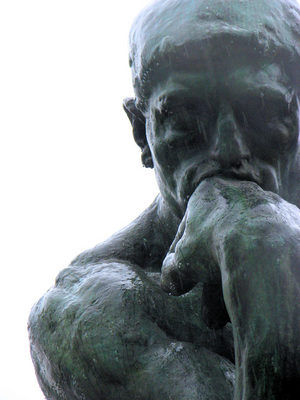The "Right" to Own Knowledge
Sat, 05/07/2008 - 8:30am — Homer
Two people on opposite sides of the world have exactly the same idea at the same time. Which one of those two people would be most morally justified in claiming to own the exclusive rights to that idea?
Should it be the first to dash through the doors of the USPTO office, with a big wad of cash in his hand?
Isn't that just further rewarding someone for already being affluent (or quick, or both), rather than rewarding him for having an original thought?
And how original are anyone's thoughts anyway?
Surely our knowledge is merely the sum of what we have been taught, and not some divine gift handed down from God, entitling the bearer to exclusive privileges. How can anyone claim exclusive rights to that which has been collected from others, such as authors; teachers; parents and peers? Are those contributors not equally entitled to attribution and rights to that knowledge? Are such contributors not also entitled to benefit from those ideas? Given the scope of where one acquires knowledge, shouldn't those beneficiaries encompass all mankind?
This is the essence of Free Software.
Official Notice to the Associated Press
Tue, 24/06/2008 - 2:18am — HomerThe following copyright notice applies only to The Associated Press; its subsidiary holdings; partners and members. To find out why, click here.
All non-derivative content of this site is © 2006 - 2022 Slated.org unless otherwise stated. No reproduction without permission. Licensed permission shall only be granted upon written request and subsequent agreement by each licensee to pay the sum of £1,000,000 (one million UK pounds sterling) per element per instance of reproduction.
The "Press 9 to Claim Your Prize" Telephone Scam
Mon, 23/06/2008 - 11:58am — HomerA couple of days ago I received this telephone call, the transcript of which is as follows:
Congratulations!
You have been randomly selected to receive a Florida Bahamas holiday with all accommodations.
To hear more details press "9".



